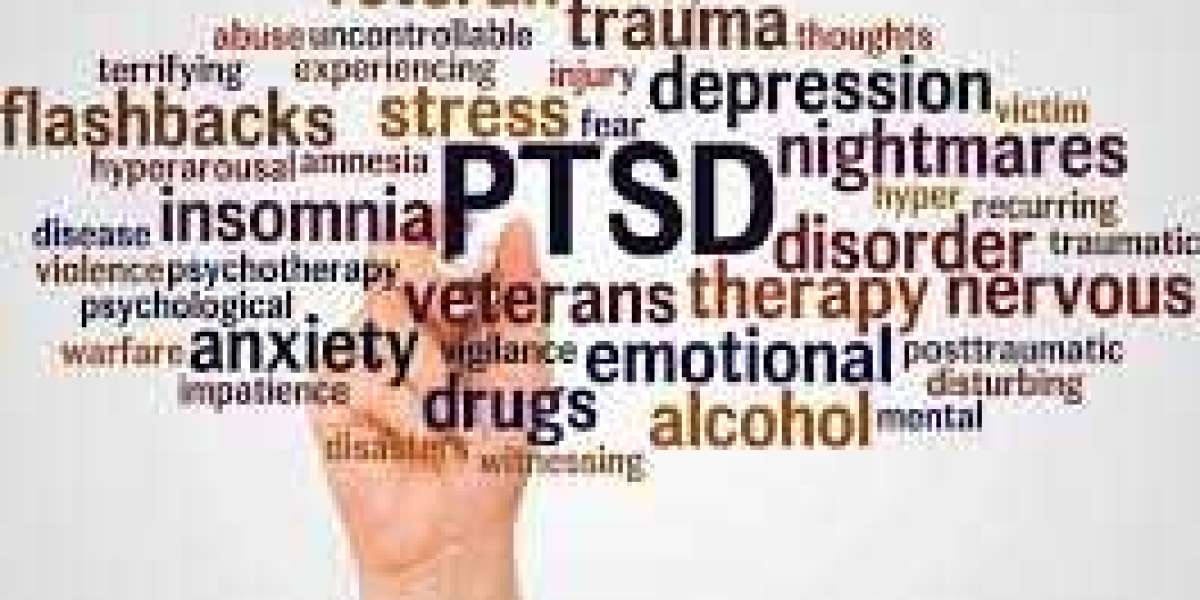Trauma affects individuals in different ways. Some people carry the weight of traumatic experiences without fully understanding how deeply it impacts their lives. However, trauma therapy offers a pathway to healing for those struggling with the aftermath of their experiences. Trauma therapy is designed to help individuals process and heal from emotional wounds caused by distressing or harmful events, offering a sense of hope and restoration. In this blog, we will explore who can benefit from trauma therapy, the signs of unhealed trauma, and how therapy can provide lasting relief.
Understanding Trauma and Its Impact
Trauma can be defined as an emotional response to a distressing or disturbing event. It can manifest in various forms, including physical, sexual, emotional, and psychological trauma. When trauma is left unaddressed, it can have lasting effects on an individual’s mental and emotional well-being.
The Impact of Trauma on Mental Health:
- Trauma often leads to the development of mental health disorders such as depression, anxiety, and post-traumatic stress disorder (PTSD).
- Individuals who have experienced trauma might suffer from constant feelings of fear, guilt, shame, or anger.
- It can interfere with their ability to form healthy relationships, trust others, or regulate their emotions.
What Are the Signs of Unhealed Trauma?
Recognizing the signs of unhealed trauma is an essential first step toward recovery. Many individuals may not immediately realize how deeply trauma affects them, as the symptoms can be subtle or manifest in unexpected ways.
Unhealed Trauma May Show Up As:
- Emotional numbness or detachment: An individual might feel disconnected from their emotions or surroundings.
- Hypervigilance or constant fear: The person may feel on edge, as if something bad is about to happen.
- Avoidance of situations or people: A person may avoid places, people, or activities that remind them of the trauma.
- Outbursts of anger or irritability: Trauma can cause people to react more strongly than expected, especially when they feel triggered.
- Difficulty trusting others: Trust issues are common, particularly when the trauma involved betrayal or abuse.
These signs are often mistaken for other issues, but they all point back to unresolved trauma. If someone has experienced a traumatic event and is facing these signs, they could benefit from trauma therapy.
Can I Feel Better If Years of Therapy Haven’t Helped Me Yet?
A common concern for those who have been through traditional therapy without finding relief is, "Can I ever feel better?" The answer is a resounding yes. It is possible to heal from trauma, even if you have been stuck in therapy for years without noticeable progress.
Trauma therapy has evolved significantly over the years, and many individuals who feel “stuck” in their healing journey can still benefit from newer, specialized approaches. Methods such as Eye Movement Desensitization and Reprocessing (EMDR), Cognitive Behavioral Therapy (CBT), and somatic therapies have proven highly effective for many individuals.
Beyond Physical Pain: How Chronic Pain Impacts Mental Health—and What You Can Do About It
Chronic pain often goes hand in hand with emotional distress, significantly impacting mental health. The constant strain of dealing with physical discomfort can lead to feelings of helplessness, depression, and anxiety. It's essential to recognize that the mental and emotional toll of chronic pain is just as real as the physical pain. Integrating approaches such as mindfulness, cognitive therapy, and trauma-focused therapies can help individuals manage both the psychological and physical aspects of chronic pain.
Why Therapy May Not Have Worked Before:
- Mismatch between therapist and client: Sometimes, the therapist’s approach may not align with the patient’s needs.
- Traditional methods may not address deep-rooted trauma: More modern therapies target the neurological and emotional impacts of trauma more effectively than past techniques.
- Personal resistance to healing: Healing from trauma can be painful and challenging, which can lead to resistance, even on a subconscious level.
However, trauma therapy is not a one-size-fits-all solution, and if traditional approaches have not helped, it might be worth exploring other options. The right therapist can make a significant difference in your healing process.
The Good News About Trauma and PTSD Healing
The path to healing trauma, including PTSD, is not always linear, but the good news is that there is real hope for recovery. Many individuals with PTSD or other trauma-related disorders have found lasting relief through specialized trauma therapies.
Healing is Possible:
- Therapies like EMDR: These therapies have been shown to accelerate healing by targeting the brain's response to trauma, reducing the emotional impact of traumatic memories.
- New therapeutic techniques: There is an increasing range of treatment options available, many of which focus on restoring balance to the nervous system and helping individuals reconnect with their emotions and bodies.
- Long-term results: Many people who have undergone trauma therapy report lasting changes, such as improved emotional regulation, better relationships, and reduced symptoms of anxiety and depression.
While the journey to healing can be difficult, it is entirely possible to overcome the impacts of trauma. With the right help and support, individuals can break free from the hold that trauma has over their lives.
Is Trauma Therapy Right for You?
Trauma therapy can be beneficial for anyone who has experienced a distressing or harmful event in their life. However, it is particularly helpful for those who are facing ongoing symptoms that affect their daily functioning.
Who Should Consider Trauma Therapy?
- Individuals with PTSD: PTSD is often a direct result of traumatic events, and specialized therapy is crucial for recovery.
- Survivors of abuse or violence: Anyone who has experienced abuse—whether physical, emotional, or sexual—can benefit from trauma therapy.
- People who struggle with emotional regulation: Those who frequently experience emotional outbursts or numbing can find trauma therapy beneficial.
- Anyone who has been through life-altering events: This includes natural disasters, accidents, or military combat.
Trauma therapy is not just for those with severe PTSD—it can also help individuals who have been impacted by less immediately obvious forms of trauma, such as childhood neglect, workplace trauma, or relational issues.
Therapy That Works: Exploring Different Approaches
There are many different types of trauma therapy available, and the right approach depends on your unique needs. Some of the most effective therapies include:
- Cognitive Behavioral Therapy (CBT): CBT focuses on identifying and changing negative thought patterns that stem from trauma. This is one of the most widely used therapeutic approaches for treating trauma-related disorders.
- Eye Movement Desensitization and Reprocessing (EMDR): EMDR is particularly effective for PTSD and involves the use of bilateral stimulation (such as guided eye movements) to help the brain reprocess traumatic memories.
- Somatic Therapy: This approach focuses on the body’s response to trauma. It helps individuals release the physical tension and stress caused by past traumatic experiences.
- Trauma-focused Cognitive Behavioral Therapy (TF-CBT): This therapy is tailored for children and adolescents and combines traditional CBT with trauma-sensitive interventions.
- Psychodynamic Therapy: This method explores unconscious processes and past experiences to help individuals understand how their trauma has shaped their current behavior and emotions.
Each of these therapeutic approaches has its strengths, and in some cases, combining methods may yield the best results. A Therapist NJ will work with you to determine the most appropriate treatment plan based on your needs.
The Role of Support Systems in Trauma Recovery
Healing from trauma is not something that should be done alone. A strong support system can make all the difference in someone’s recovery journey. Support from family, friends, and professionals can provide a safe space for healing and encourage emotional well-being.
How to Build a Support System:
- Talk to trusted loved ones: Share your struggles with people you trust to create a sense of connection and understanding.
- Consider support groups: Group therapy and support groups for trauma survivors can help people feel less isolated and provide a space for sharing experiences.
- Seek professional help: Good Therapists NJ can offer personalized therapy and provide strategies for managing triggers and processing past trauma.
Conclusion: The Path to Healing
Healing from trauma is possible, and trauma therapy plays a vital role in that process. Whether you are struggling with PTSD, childhood abuse, or any other form of trauma, there are effective therapies available that can help. If you have been struggling to find relief, it's important to know that there is hope. By seeking the help of trauma specialists like PTSD Specialists NJ, you can begin your journey toward healing.








